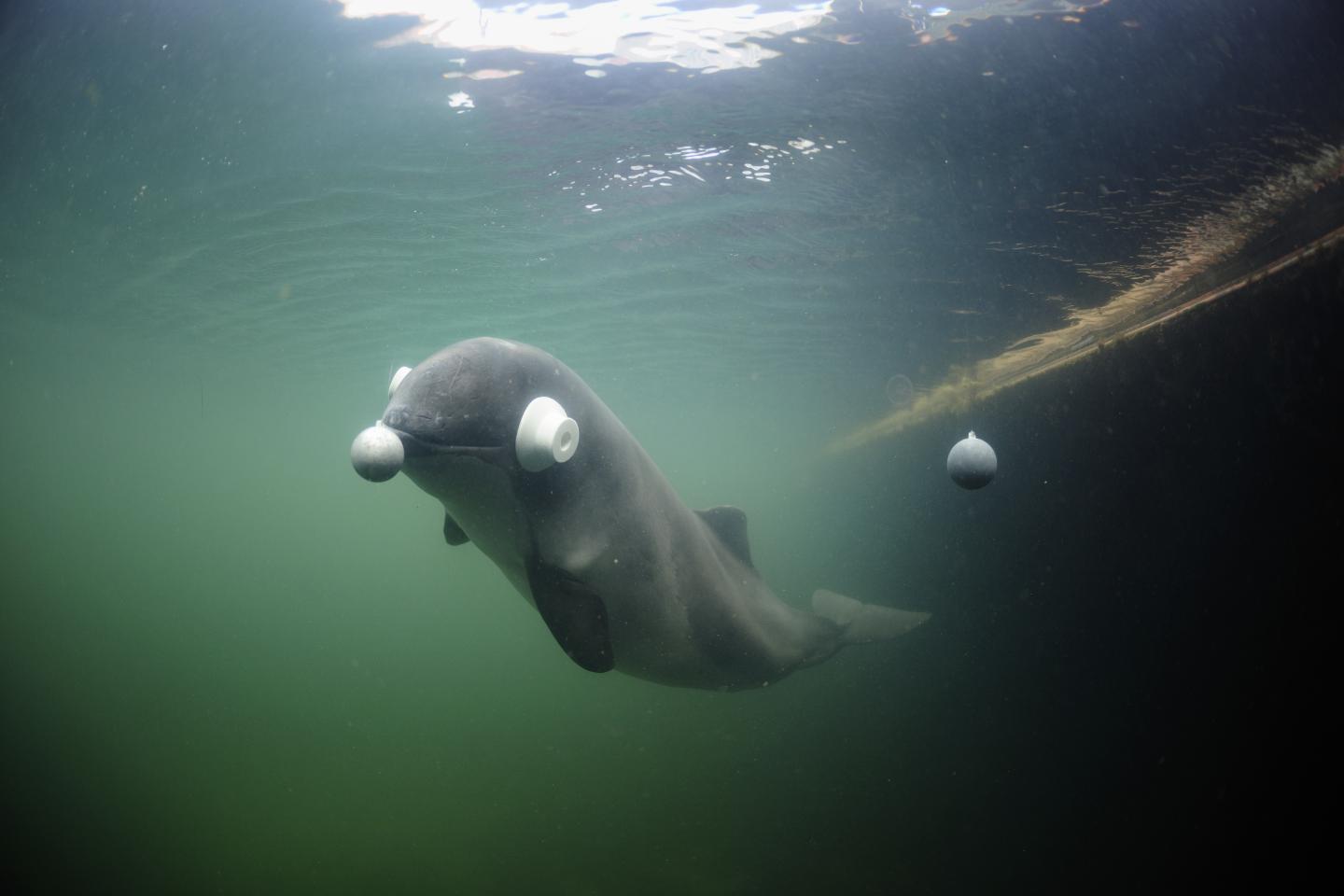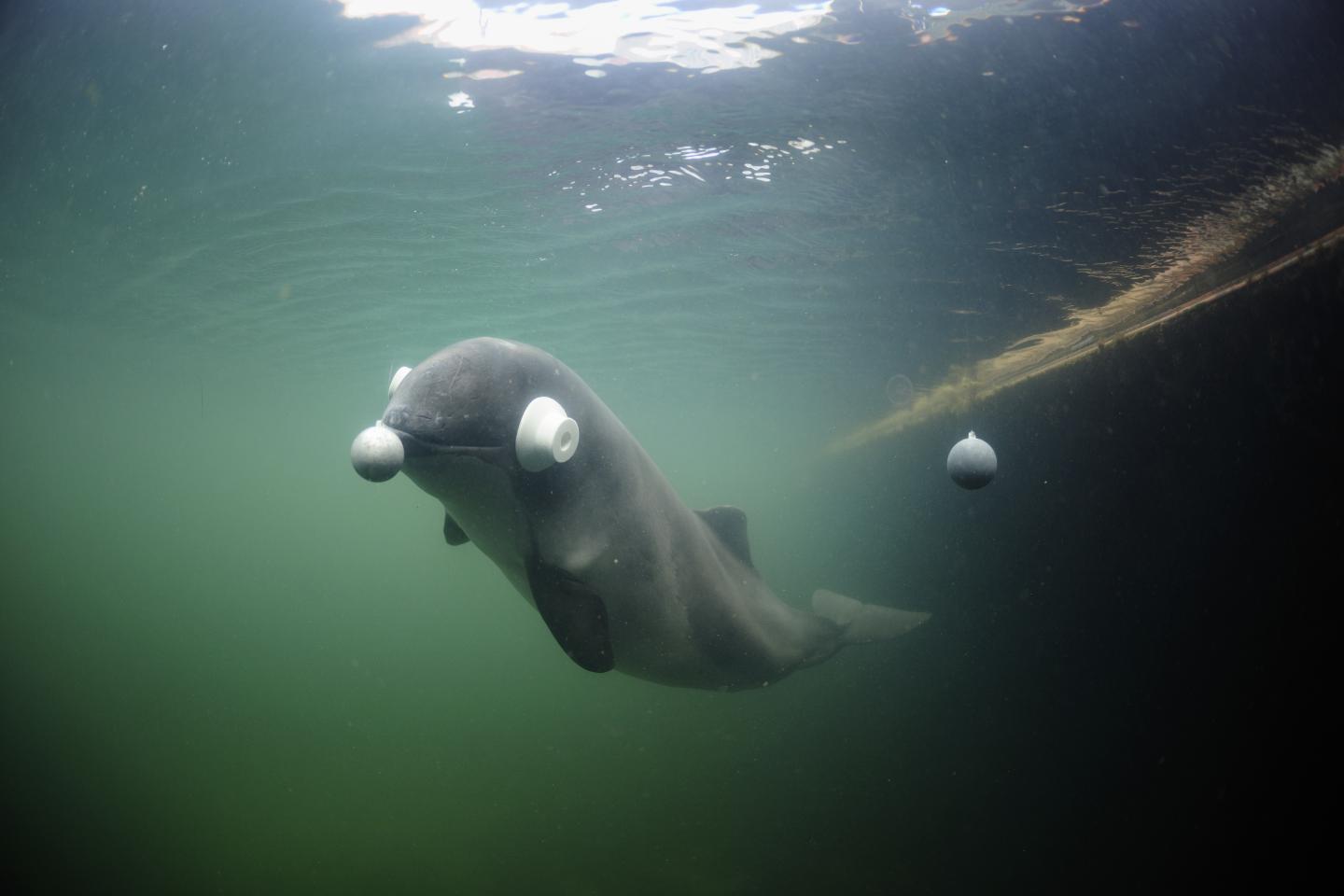
Credit: Solvin Zankl © Fjord og Bælt- Kerteminde
All mammals can hear — but it is not an ability that is fully developed at birth. Some mammals like humans take years to fully develop their hearing abilities, but for a newborn harbour porpoise it takes less than 30 hours. This is the fastest in any studied mammal.
It takes less than 30 hours for a newborn harbour porpoise (Phocoena phocoena) to develop full hearing abilities. This is faster than any other mammals studied.
- Hearing is the most important of the senses for a porpoise, both for adults and calves, so it is logical that a newborn calf spends energy on fine tuning and optimizing this sense as fast as possible, says biologist Magnus Wahlberg, University of Southern Denmark.
Together with colleagues Lara Delgado-García from SDU and Jakob Højer Kristensen from the research and experience center Fjord&Bælt in Kerteminde, Denmark, he has published a study in Journal of Comparative Physiology A.
Rabbits need months to develop full hearing
Mammals are not born with fully developed hearing. It may take weeks, months or years, and land living mammals need the most time. Guinea pigs need weeks. Cats, rabbits, minks, bats and rats need months. And humans may need years.
- A newborn porpoise calf needs a good hearing, so that it can maintain contact with its mother and develop echolocation skills, says Jakob Højer Kristensen.
The biologists studied the hearing in two newborns (age 1-4 days old) and three adults from the Fjord&Bælt center.
The adults were studied for comparison.
No difference between newborns and adults
The biologists non-invasively measured the auditory brainstem response in the animals, stimuli consisting of clicks centered at 130 kHz, which is the frequency band used for echolocation and communication in this species.
- We saw no significant differences in the hearing of the newborn and the adult porpoises, says Lara Delgado-Garcia.
The results indicate that hearing is fully developed within a day from birth, which suggests that harbour porpoise neonates have the earliest hearing development in any mammal studied so far.
What about other whales?
All other studies of mammal hearing have shown that newborns have only limited or sometimes even absent hearing. This is because hearing is not fully developed, but is still being developed after birth.
Humans can hear right after birth – and also before birth — but it takes years before the sense is fully developed (humans are generally slow developers).
With the new knowledge about porpoise hearing development, the researchers expect that the same phenomenon might be found in other toothed whales. There are ca. 80 different toothed whale species.
Information about hearing in porpoises and other toothed whales is crucial both for understanding the sensory development of newborn toothed whales shaped by evolution, as well as for designing efficient protection mechanisms and legislations for species prone to disturbance by anthropogenic noise from windmills, ship traffic, etc.
###
Ref: Journal of Comparative Physiology A. February 2017, Volume 203, Issue 2, pp 121-132: Precocious hearing in harbour porpoise neonates.
Media Contact
Birgitte Svennevig
[email protected]
452-759-8679
@@NATsdu
http://www.sdu.dk/en/om_sdu/fakulteterne/naturvide





